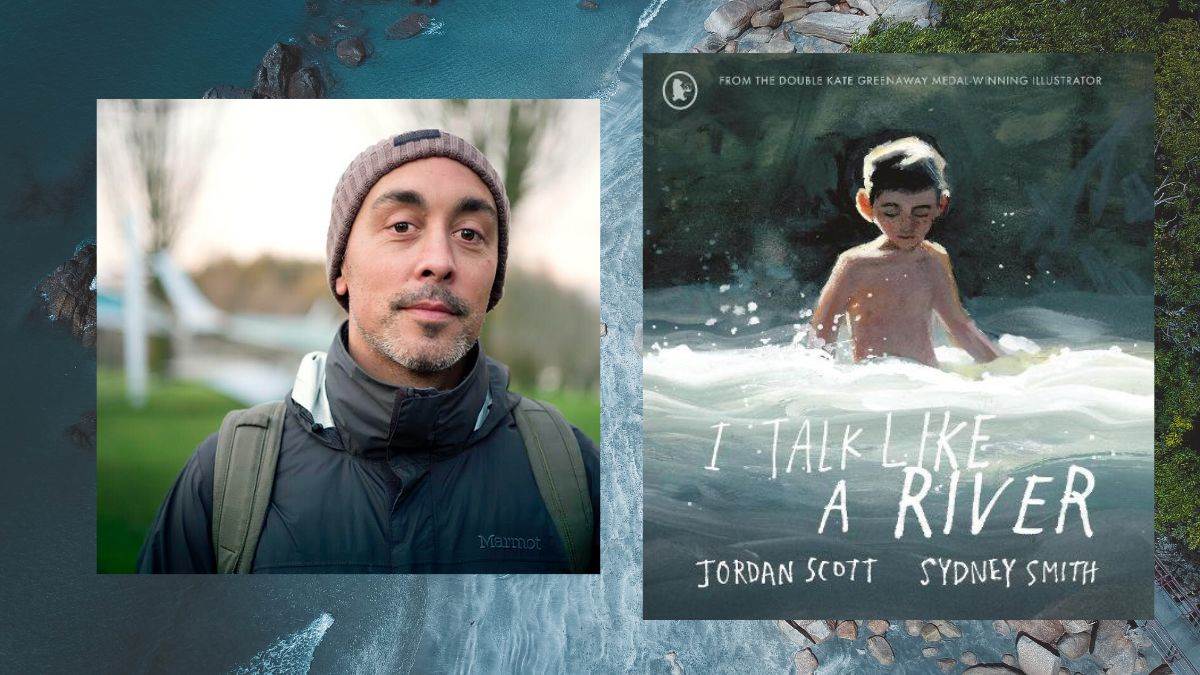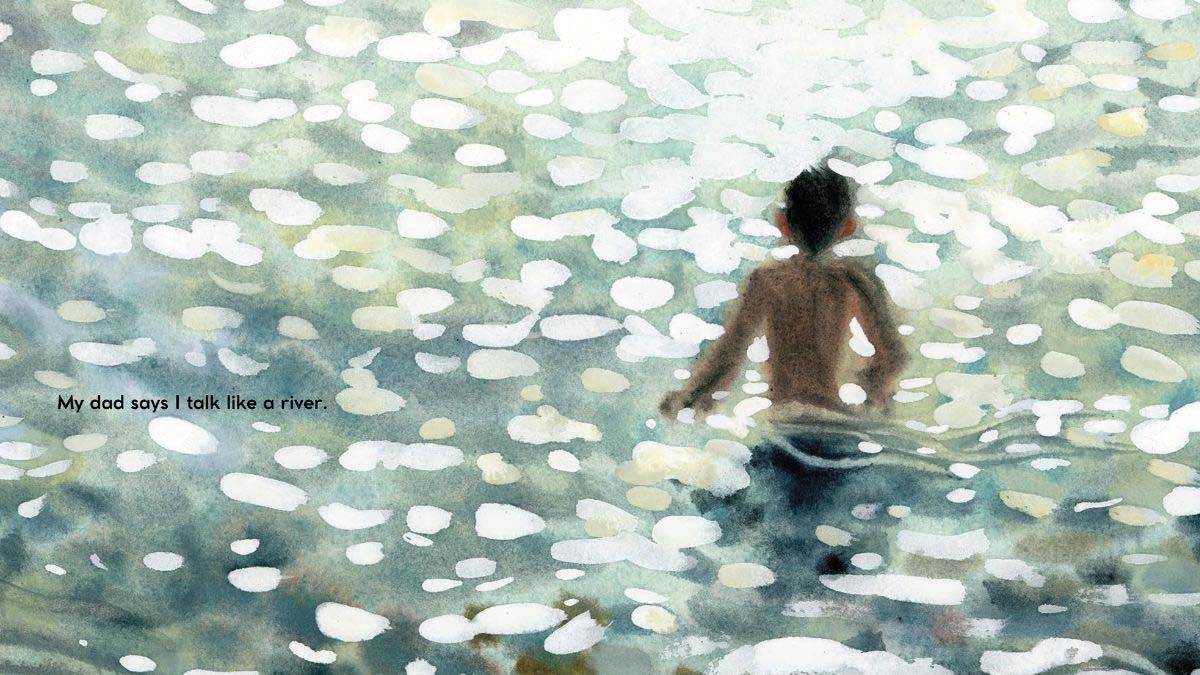The Nature of Stammering
Published on: 09 August 2022
Jordan Scott talks to BookTrust consultant Alex Strick about how stammering influenced his life, his poetry and his debut picture book

Can you tell us about your own experience of stuttering (or stammering as we tend to say in the UK) as a child?
As a child, my relationship to stuttering was one of shame and avoidance. I remember doing anything and everything to avoid speaking and I often dreamt of words as enormous, vicious creatures, haunting whatever landscape I found myself in.
How did your relationship with stuttering evolve as you moved into adulthood?
My relationship to stuttering only really started to change when I began to write and perform poetry. Through poetry I found a home within a community that valued my stutter as part of my identity and as a means of artistic expression.
So was poetry a medium with which you always had a connection?
Yes, absolutely. My mother is a wonderful poet and always encouraged me to write through books but also through the way she taught me to see the world. On walks with my mom, she’d always point out exquisite details – the minutiae of everyday life. This was a real gift that I have passed along to my own children.

How did I Talk Like a River come about – it feels as if it was perhaps always waiting (indeed asking) to be told in picture book form?
Absolutely. I told a version of this story at the end of my poetry book blert – which explores the poetics of stuttering. The essence of the story I told in I Talk Like a River forms the structuring principle of that poetry collection. The gift my father gave me was also one of poetry. Blert was published in 2008 so it took a long time for me to figure out how to tell this story in a picture book form.
Did you talk to any other people with lived experience whilst you were developing the book or get any relevant feedback since it published?
Before I Talk Like a River was published, I don’t think I spoke to anyone else who stuttered. I read a lot about stuttering and obsessed over poets I found out stuttered, like Phillip Larkin for example, but my life outside of books was solitary. This all changed after the book was published and I am very grateful for this. The feedback has been incredible and truly lifechanging on so many levels. I love hearing from older stutterers who say that they wish this book was around when they were young. I also take so much joy in hearing from young people who find the book so empowering.
The book draws a comparison with the beauty and movement of nature. There is a wonderfully ‘liberating’ sense of encouraging people to embrace speech differences and go with the flow?
I would say so. I never really like telling people how to read the book or what they should ‘get’ from the book, but I will say that the river/stuttering metaphor is one that has a multitude of meanings.
The support your father gave you on a ‘bad speech day’ was clearly very powerful. Do you have any final advice for parents and professionals in terms of supporting children growing up with a stutter?
Ah! You got me again! I really hesitate to give advice. Not to sound glib, but I really think the answer to this question is in the book. Thank you so much for these very thoughtful questions and I hope people enjoy the book.
Topics: Bookmark, Disability, Features

